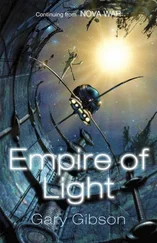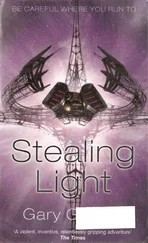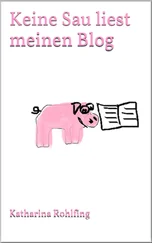That Dawn Raffel sentence, with its recurring b ’s and l ’s, illustrates another form of play available to any writer. Avail yourself of alliteration — as long as it remains ungimmicky, unobtrusive, even subliminal. Such repetition can be soothing and stabilizing, especially in a sentence whose content and emotional gusts are anything but. You can let a single consonant dominate all or most of a sentence — the way Don DeLillo does with h ’s in “He was here in the howl of the world,” and as Christine Schutt does with k sounds in “He knew the kind of Kleenex crud a crying girl left behind.” And the reiterated consonants do not have to appear at the beginnings of words: they can also show up at the very ends, as the t ’s do in Barry Hannah’s sentence “Ah, well, what you cannot correct you can at least insult,” or they can be confined to the interiors of words, as the l ’s are in Elizabeth Hardwick’s sentence “Another day she arrived as wild and florid and thickly brilliant as a bird.”
Take advantage of assonance as well. Keeping a single vowel in circulation through most of the conspicuous words will give a sentence another kind of sonic consummation, as Don DeLillo achieves with the five short a ’s in “He mastered the steepest matters in half an afternoon,” and as Sam Lipsyte does with three short u ’s in “You could touch for a couple of bucks.” (A lesser writer would of course have been satisfied with “For just two dollars, you could cop a feel.”) Or reserve the assonance for the words in a sentence deserving the greatest stress, as Ben Marcus does in “The ones that never got born were poured into the river.” You can even divide a sentence into two or more acoustical zones and let a single vowel prevail in each zone. Here is a three-zone sentence by Don DeLillo: “There were evening streaks in the white of the eye, a sense of blood sun.”
You can make the most of both assonance and alliteration in a single sentence or multi-sentence sequence. In the following two-sentence run, Sam Lipsyte assonates with the long oo sound and alliterates with p ’s and k sounds: “Dinner that night was some lewd stew I’d watched Parish concoct, undercooked carrots and pulled pork in ooze. I believe he threw some kiwi in there, too.” Some writers take merged assonance and alliteration beyond slant rhymes or half rhymes (such as lewd, stew , and ooze in Lipsyte’s first sentence) and even as far as a careful, unsingsongy kind of internal perfect rhyming, in which the rhyming words end with an identical vowel-and-consonant structure, as Fiona Maazel does in this sentence, which is acoustically unified further by the repeated k sounds: “I could tell she had been crying from the swell of her pores and the spackle crusted at the levees of each eye.” And here are three samplings from the saddeningly neglected writer Elizabeth Smart, all from her short-fiction collection, The Assumption of the Rogues & Rascals : “This cliff, I thought, this office block, would certainly suit a suicide”; “The long fall is appalling”; and the aphoristically molded, five-word formulation “God likes a good frolic.” In the last of these three sentences, there are all sorts of family resemblances among the words: the identical consonantic shells of God and good (as well as of like and the second syllable in frolic ) and the shared vowel of God and frolic . And the way the words have been arrayed gives the sentence its aphoristic permanence. The article a , at the center of the statement, separates two phrases very similar in shape, with the words in the second phrase, good frolic , appearing as enlargements of, and elaborations on, the words in the first pair: God likes .
There are still further opportunities for you to work the uncanny into your phrasing. Press one part of speech into service as another, as Don DeLillo does in “She was always maybeing” (an adverb has been recruited for duty as a verb) and as Barry Hannah does in “Westy is colding off like the planet” (an adjective has been enlisted for verbified purpose as well). A variation is to take an intransitive verb (the sort of verb that can’t abide a direct object) and put it in motion as a transitive verb (whose very nature it is to enclasp a direct object). That is what Fiona Maazel is up to with the verb collide , which abandoned all transitive use ages ago, in her sentence “Often, at the close of a recovery meeting, as we make a circle and join hands, I’ll note the odds of these people finding each other in this group; our sundry pasts and principles; the entropy that collides addicts like so many molecules.” Or take some standard, overworked idiomatic phrasing — such as “It turned my stomach”—and transfigure it, as Barry Hannah does in “I saw the hospital in Hawaii. It turned my heart.” Or rescue an ordinary, overtasked verb from its usual drab business and find a fresh, bright, and startling context for it, as Don DeLillo manages with speaks in “You will hit traffic that speaks in quarter inches” and as Barry Hannah does with the almost always lackluster verb occurred in “… a single white wild blossom occurred under the forever stunted fig tree.…” You can also choose to prefer the unexpectable noun, as Diane Williams does with history in “We can come in out from our history to lie down” and as Sam Lipsyte does with squeaks in “Home, we drank a little wine, put on some of that sticky saxophone music we used to keep around to drown out the bitter squeaks in our hearts.” Or you can choose a variant of a common word, a variant that exists officially in unabridged dictionaries but has fallen out of usage — if, that is, you have reason enough for doing so. In Fiona Maazel’s sentence “This was not how I had meant to act, all tough and abradant,” not only does the unfamiliar adjective abradant , with its harsh d and t , sound more abrasive than the milder, everyday abrasive , but its terminal t has been bookended with the initial t of tough , lending symmetry to the adjectives coupled at the sentence’s end. And you can take the frumpiest, the ugliest of the so-called vocabulary words — the Latinate monstrosities that students are compelled to memorize in SAT- and GRE-preparation classes — and urge them into a casual setting, where they finally shine anew. Fiona Maazel pulls this off in her sentence “The floor tiles appeared cubed and motile.” The choice of the unusual sentence-ending adjective, which in other contexts might risk coming across as thesaurusy and pretentious, most likely resulted from the writer’s unwavering alertness to the alphabetics of the noun in the subject slot of her sentence. The upshot of this morphological correspondence between tiles and motile is that the subject’s embrace of its second adjectival complement is much stronger than that which would be achieved by the two words’ merely syntactic functions alone. Finally, you can fool around even with prepositions. Prepositions often attach themselves adverbially to verbs and thus form what are known as phrasal verbs, such as check out and open up and see through , but you are not legally bound to use the orthodox preposition with a verb. Don DeLillo breaks from established usage in the sentences “She was always thinking into tomorrow” and “She moved about the town’s sloping streets unnoticed, … playing through these thoughts….”
Granted, there can be a downside to the kinds of isolative attentions to the sentence I have been advocating. Such a fixation on the individual sentence might threaten the enclosive forces of the larger structure in which the sentences reside. Psychiatrists use the term weak central coherence to pinpoint the difficulty of certain autistic persons to get the big picture, to see the forest instead of the trees. A piece of writing consisting ultimately of an aggregation of loner sentences might well strike a reader as stupefyingly discontinuous, too dense to enchant. But the practices I have been trying to discuss can also result in richly elliptical prose whose individual statements converge excitingly in the participating reader’s mind. These practices account in part for the bold poetry in some of today’s most artistically provocative fiction.
Читать дальше












